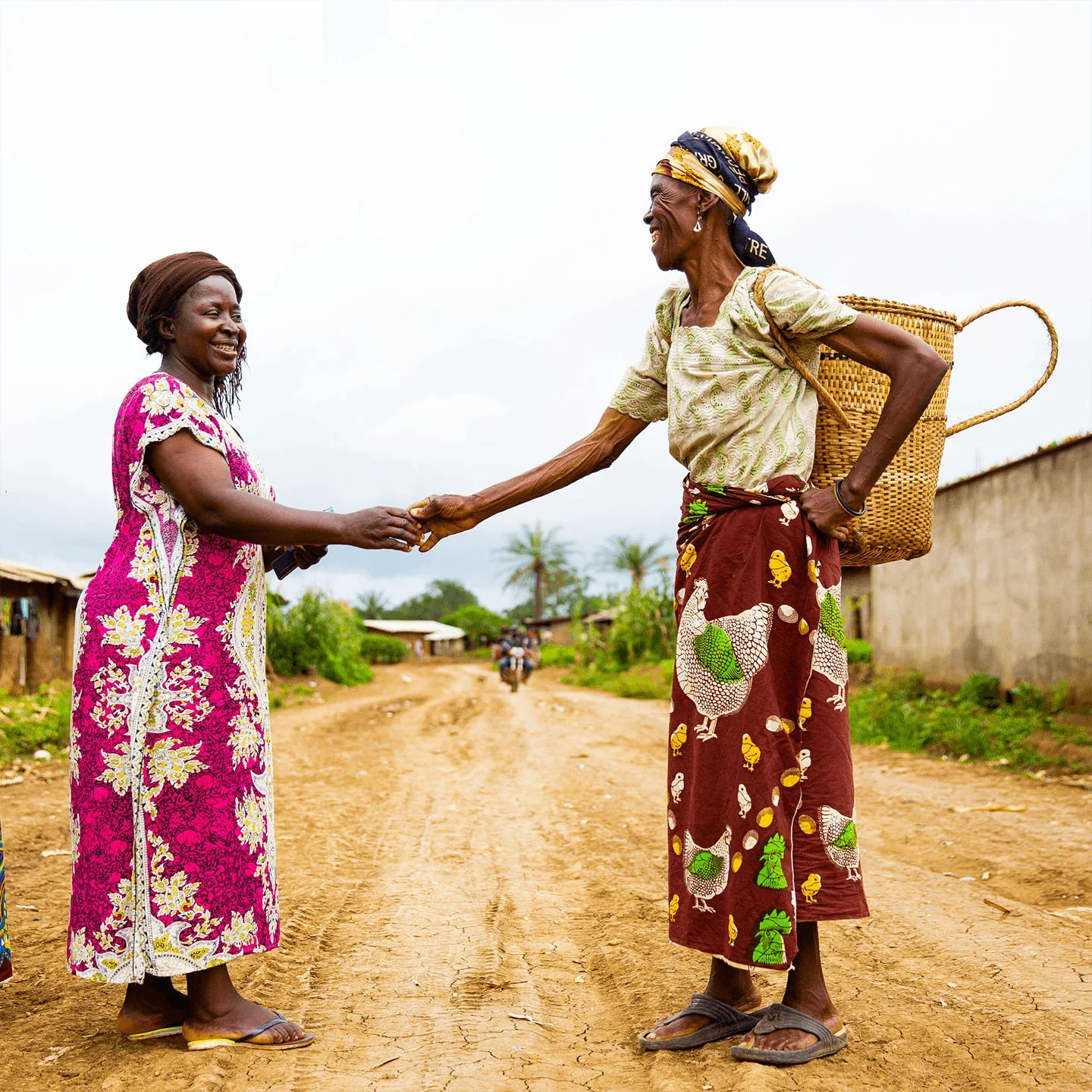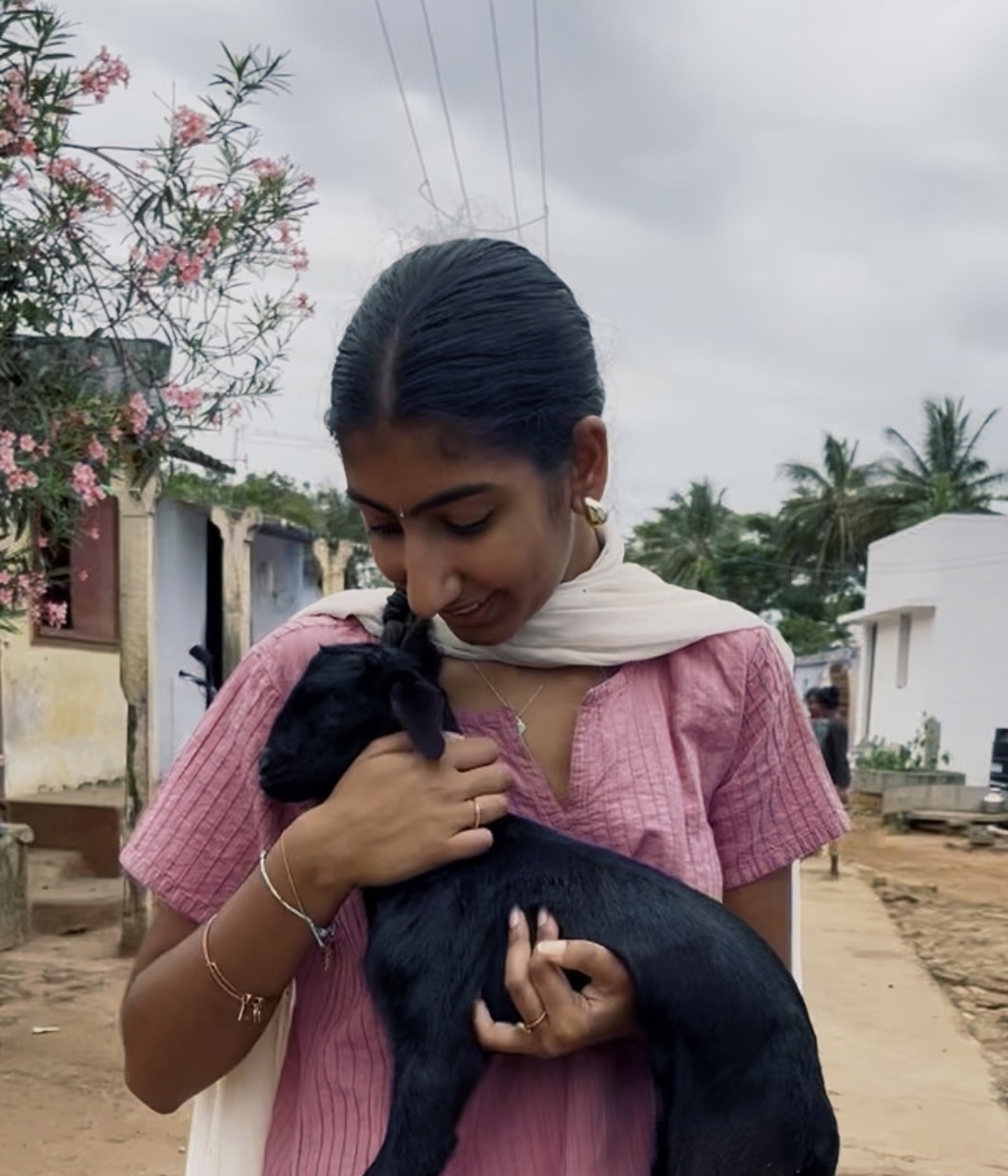The Hidden Forces Behind Your $5 Coffee: What Jeff Abella Taught Me About Global Market Dynamics

Cocoa farmers and Moka Origins suppliers in Cameroon
From Bean to Bar: A $100 Billion Market at a Crossroads
Recently, I had the privilege of sitting down with Jeff Abella, founder of MOKA Origins, for what turned out to be a truly eye-opening conversation about global economics. What started as a discussion about ethical chocolate farming with farmers in Cameroon (as pictured) quickly evolved into a masterclass on how interconnected our modern world really is. Listen to the episode here.
Jeff's background in nonprofit development work led him to spend a decade in Cameroon, where he witnessed firsthand the disconnect between billion-dollar chocolate consumption and farmers earning less than a dollar a day. This isn't just an entrepreneurial story—it's a front-row seat to understanding how supply chain economics determine whether your chocolate bar costs $3 or $12.
The Reality Behind the Bar
"One of the greatest challenges I think exists is that that disconnect is very real," Jeff told me. "Chocolate is something that developed economies are consuming a lot of, but the pods, the fruits that make up chocolate are grown in more developing economies around the equator 5,000 miles away from where that mass consumption is happening."
This geographic disconnect creates what Jeff calls a fundamental misunderstanding: "There's not a great level of understanding that this chocolate is actually a labor intensive food, not a candy. And it's grown by hand by smallholder farmers with years worth of work that go into producing this."
During our conversation, we explored how:
- Geographic disconnect between production and consumption creates fundamental misunderstandings
- Climate disasters have caused cocoa prices to rise 400% in two years
- Quality versus commodity markets determine whether farmers can earn living wages
- Direct trade relationships can transform farmer livelihoods while creating premium products
Chocolate Market Dynamics Simulator
How do global factors impact chocolate prices - from cacao farm to chocolate bar? To help illustrate these complex dynamics, I've created an interactive simulator that lets you explore how different factors impact chocolate prices in real-time. You can experiment with the same variables that entrepreneurs like Jeff navigate daily. Adjust the variables below to see how climate change, fair trade movements, and supply chain disruptions affect the price of your chocolate bar. Watch how supply and demand curves shift in real-time as you adjust market conditions
Current Chocolate Price per Pound
Global Chocolate Demand
Cacao Supply Factors
Supply Chain & Trade
The Ethical Chocolate Revolution
The rise of direct-trade relationships like those fostered by MOKA Origins has created premium markets that can command 2-3x traditional commodity prices, while ensuring fair compensation for farmers.
Climate Change Reality
Rising temperatures and changing precipitation patterns are making traditional cacao-growing regions unsuitable, forcing farmers to adapt or abandon cacao farming entirely.
The $1/Day Problem
Many cacao farmers historically earn less than $1 per day, creating unsustainable livelihoods that ethical companies like MOKA Origins are working to address through direct partnerships.
Market Volatility
Chocolate prices can swing dramatically due to weather events, political instability in producing regions, or changes in global economic conditions affecting consumer spending.
Key Insights from Our Conversation
1. The Aha Moment: When Development Work Revealed Supply Chain Reality
Jeff's realization came during his decade of nonprofit work in Cameroon, building libraries and health centers in coffee-growing communities. "We quickly realized how important coffee farming was on this community as well as cocoa farming," he explained. "One of the things that really jumped out at us was the ongoing struggle... about how challenging it is to be a coffee farmer."
The breakthrough moment: "It was just shocking that as a cocoa or coffee farmer in this region, it was challenging to really just do that because the income wasn't enough to sustain life. They weren't earning a living wage income from the beans that they were growing."
2. Climate Reality: 400% Price Increases in Two Years
Jeff shared a sobering reality about current market conditions: "Right now is one of the most challenging times we've ever faced as a company because of the global shortage of cocoa. The last two years due to El Niño and other macro climate related disasters, there's been a great shortage of cocoa in the market."
The numbers are staggering: "The price per pound is up, which is great for farmers, but they're producing less. The price went up almost 400 percent in two years."
3. The Premium Market Strategy: $10 Chocolate That's Worth It
Jeff explained MOKA's pricing philosophy: "When I think about chocolate, there's three kinds of chocolate. There's that cheap, like one or $2 chocolate bar... then there's like a mid tier... And then there's something called specialty craft chocolate, and it's $8 to $15."
The key insight: "Your pricing strategy has so much to do with your brand identity and how you position yourself in the market... If I would have charged only two or three dollars for our chocolate bar, it would have attracted the wrong consumers... it wouldn't have attracted the buyers that want to pay $8 to $15 for an exceptional small batch crafted bar that paid farmers fairly."
Listen to the Full Episode
This blog post only scratches the surface of our conversation with Jeff Abella. In the full episode, we dive deeper into:
- The emotional story of Ya 50, a Cameroonian farmer who tasted her own coffee for the first time
- How MOKA survived the 10,000-tree wildfire disaster in their early days
- The bean-to-bar process: from 4-day stone grinding to chocolate bars
- Jeff's rapid-fire book recommendations: "Good to Great," "Business Made Simple," and "Day Trading Attention"
- Why Jeff believes in gut instinct over spreadsheet formulas for entrepreneurs
Support the Mission: Visit mokaorigins.com to support ethical sourcing through their line of chocolate and coffee products.

